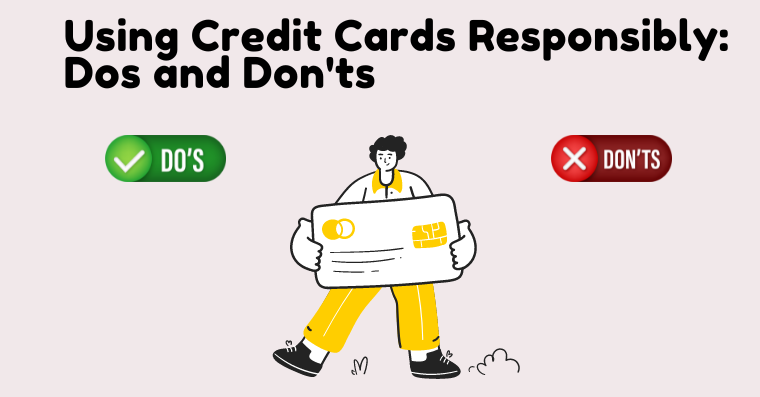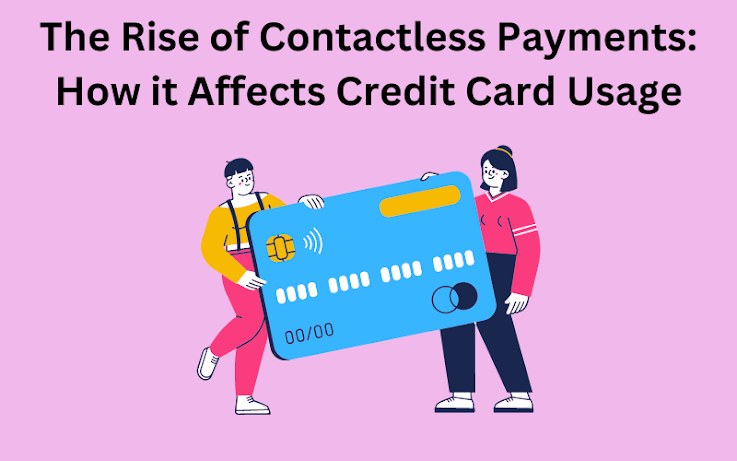Using Credit Cards Responsibly: Dos and Don'ts
Credit cards are an incredibly convenient and powerful tool for managing your finances. When used responsibly, they can help you build a solid credit history, earn rewards, and make purchases that you might not be able to afford otherwise. However, using credit cards irresponsibly can lead to debt, damaged credit, and financial stress. Let's explore the dos and don'ts of using credit cards responsibly.

Do: Pay your balance in full and
on time
One of the most important things you can
do when using a credit card is to pay your balance in full and on time every
month. This will help you avoid paying interest charges and late fees, which
can add up quickly and lead to debt. Additionally, paying your balance in full
and on time will help you build a good credit history, which can be important
when applying for loans, mortgages, and other types of credit in the future.
Don't: Max out your credit card
Another important thing to keep in mind
when using a credit card is to avoid maxing out your card. Maxing out your credit card can have several negative consequences, including high-interest charges,
damage to your credit score, and an increased risk of falling into debt.
Instead, try to keep your credit utilization below 30% of your available credit
limit.
Do: Use your credit card to earn
rewards
Many credit cards offer rewards programs
that can help you earn points, miles, or cash back for every dollar you spend.
These rewards can be used to offset the cost of travel, groceries, gas, and other expenses. To maximize your
rewards, use your credit card for all purchases, but make sure to pay your
balance in full and on time every month.
Don't: Ignore your credit card
statement
It's important to review your credit card
statement every month to ensure that all charges are accurate and that you're
not being charged any unnecessary fees or interest. If you notice any errors or
unauthorized charges, contact your credit card issuer immediately to dispute
them. Additionally, make sure to keep track of your spending so that you don't
exceed your budget or your available credit limit.
Do: Use credit cards for
emergencies
Using credit cards wisely is important,
especially for emergencies like medical bills or unexpected car repairs. But
it's essential to use credit cards only for emergencies and not rely on them
for daily expenses. If you find yourself frequently using your credit card for
everyday purchases, it might be a sign to assess your budget and spending
habits.
Don't: Apply for too many credit
cards at once
Applying for multiple credit cards at
once can hurt your credit score, as it can indicate to lenders that you're
taking on too much debt. Additionally, applying for too many credit cards can
lead to overspending and a higher risk of falling into debt. Instead, only
apply for credit cards that you need and that offer the best rewards and terms.
Conclusion
Using credit cards responsibly can be a
valuable tool for managing your finances and building a solid credit history.
By following these dos and don'ts, you can make the most of your credit cards
and avoid debt and financial stress. Remember to always pay your balance in
full and on time, avoid maxing out your credit card, use your credit card for
rewards, review your statements regularly, use credit cards for emergencies, and
avoid applying for too many credit cards at once.
Read More: Tips For Maximizing Your Credit Card Rewards
.png)


Comments
Post a Comment